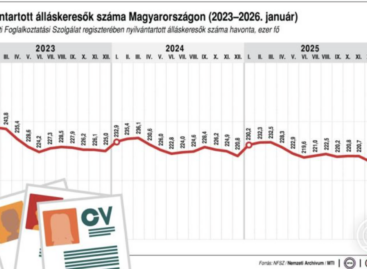Do guest workers inevitably come to Hungarian agriculture and the food industry?
Significant labor shortages and employment difficulties exist in the Hungarian agricultural and food industry sectors, which can be attributed to multiple factors. According to Dr. Kántor Gyöngyi, HR director of the Master Good corporate group, these include low productivity levels, fragmentation of family farms, a gap between the sector and the youth, an aging farming community, and rural depopulation. Additional challenges like low wages, lack of automation, and climate change also complicate the situation.
 Recent labor market data for 2023 shows that employment in Hungary was 4.74 million, indicating an increase from the previous year. The employment rates between men and women remained unchanged, while a low employment rate of 27.2% was observed among the youth.
Recent labor market data for 2023 shows that employment in Hungary was 4.74 million, indicating an increase from the previous year. The employment rates between men and women remained unchanged, while a low employment rate of 27.2% was observed among the youth.
The Master Good corporate group has been relying on foreign workers, primarily from the Philippines, to meet its growing labor demands, as it can no longer suffice with domestic resources alone. These workers are reliable and integrate well, largely due to their proficiency in English.
To address the challenges facing the sector, it is crucial to enhance productivity, promote automation, and improve working conditions to retain and attract domestic workers to the agriculture and food industry sectors.
Related news
Sándor Czomba: The number of registered job seekers has decreased by 6 thousand people – a new program helps job seekers find employment
🎧 Hallgasd a cikket: Lejátszás Szünet Folytatás Leállítás Nyelv: Auto…
Read more >Related news
The Ministry of Agriculture supports the replacement of plantations damaged by frost
🎧 Hallgasd a cikket: Lejátszás Szünet Folytatás Leállítás Nyelv: Auto…
Read more >








